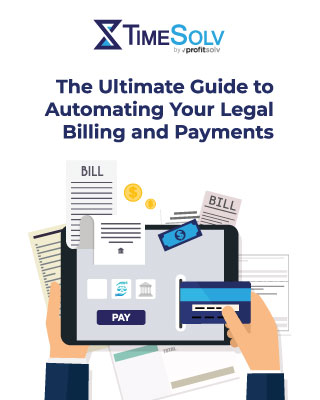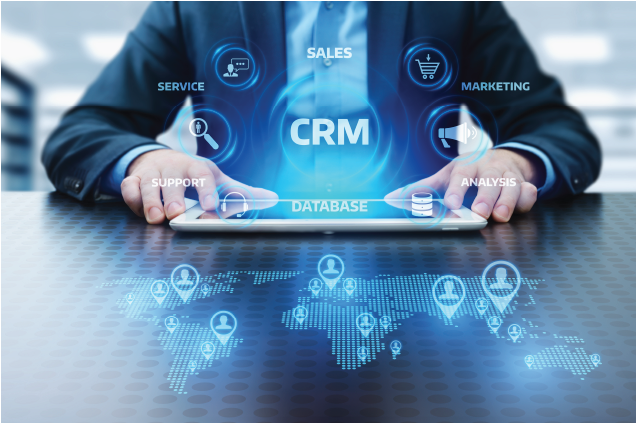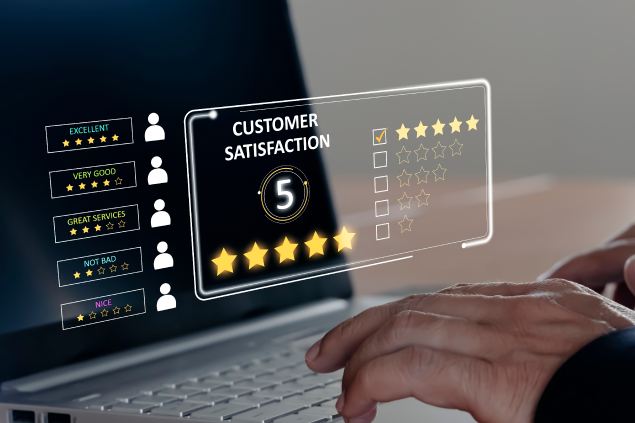There’s a certain charm to managing client relationships by hand. Personalized notes, handwritten updates, and giving your clients the feeling that they’re more than just another account can go a long way toward fostering healthy, long-lasting client relationships.
While this “handwritten” approach can be great in the beginning, as your firm grows and takes on an increasing number of complex cases, it can become difficult to provide a more personal touch and manage all of the complicated processes that go into running your firm.
This is where client relationship management (CRM) software comes into play. A legal CRM can enhance client relations, keep you organized, and help provide personalized service without sacrificing efficiency and quality work.
Adding new software to your law firm’s tech stack can be a big decision, though. How do you know when it’s time to take the leap?
4 key indicators your law firm needs a legal CRM
If you’re unsure of whether or not your law firm needs a CRM, here are a few signs that it might be time to make the investment.
1. Volume of leads
One of the first indicators a firm is ready for a legal CRM is the volume of leads it receives. As your number of potential clients and cases increases, traditional methods of managing leads can become unsustainable.
Without a centralized system in place, your firm may miss opportunities, have delayed response times, and, ultimately, experience a decline in client satisfaction.
Legal CRMs excel in handling large volumes of data and facilitate a structured and organized approach to lead management. With CRM, law firms can monitor leads from initial contact all the way through to conversion. CRM software also enables personalized communication, helping your firm build stronger connections with potential clients.
2. Client retention challenges
Another clear sign that it’s time for a law firm to adopt a CRM is when it begins facing challenges with retaining existing clients.
Maintaining tailored communication can become more difficult as your caseload grows and client interactions become more diverse. CRM systems provide a single platform to manage client interactions, preferences, and feedback. The result is that your firm can be known for excellent results as well as attentive service.
Using a CRM to enhance client retention not only ensures a steady revenue stream but also contributes to your firm’s reputation and increases the chance of referrals from current clients.
3. Slow speed to lead
In the legal field, it’s critical to respond to inquiries quickly. The faster your firm can respond to a potential client’s inquiry, the higher the chances of securing their business.
Another way to look at it is this: if your law firm isn’t responding fast enough, you’re losing business to your competitors.
CRM systems can eliminate delays between communication channels and help to ensure that inquiries are promptly addressed, improving your speed to lead.
The right legal CRM will also enable the automation of routine tasks, like sending initial responses, scheduling follow-ups, and setting reminders for important deadlines. This accelerates your speed to lead and decreases the amount of busy work involved in handling leads.
4. Unqualified leads
In general, leads are great. But when they’re not qualified, you can quickly lose time and money chasing after a potential client who isn’t the right fit or isn’t seriously interested in your services.
When equipped with intelligent intake forms, a legal CRM can be an invaluable asset for law firms. These forms provide an easy way for potential clients to submit their information, helping the firm assess the case’s viability before any staff invests significant time or resources. This ensures that only qualified leads are pursued, improving efficiency.
Additionally, by categorizing incoming leads, the CRM provides actionable data to refine marketing efforts, helping firms identify productive sources of quality leads and tailor their strategies accordingly.
5. Too many tools, too little communication
Managing leads across different platforms can quickly lead to bottlenecks and miscommunication, two situations that discourage even the most qualified leads from signing with your practice.
A legal CRM system can help by connecting your tools and providing a unified view of leads. With your lead management taking place in one software, law firms can better track, nurture, and convert clients.
What’s more, a legal CRM that ties into your practice management software eliminates the need for manual data entry—client information automatically syncs across the software.
The Ultimate Guide to Automating Your Legal Billing and Payments
To stay competitive in today’s legal landscape, law firms must embrace the power of technology, especially when it comes to billing and payments.
The best way to improve your law firm’s cash flow while also increasing client convenience is 'Automation'.
Download our free guide to improve your legal billing and payment process today!
Features to look for in legal CRM
CRM systems offer a wealth of features designed to meet the unique needs of law firms. These features go beyond basic contact management and extend to functionality that can streamline the entire client lifecycle.
Contact management
CRM centralizes client information, making it easily accessible to your staff. This includes contact details, communication history, case details, and any other relevant information. A clear view of client data allows your team to provide more personalized and efficient services.
Smart intake forms
Logic-based, automated client intake forms focus on the most important details for new clients. Using decision trees, the software helps determine if a client is the right fit for your firm, assigns tasks, determines follow-ups, and sends polite decline messages when necessary.
Marketing automation
Staying on top of communications is easier with marketing automation. Automate email responses, create drip campaigns, and set up follow-up reminders to keep leads and clients in the know.
AI functionalities
AI tools can empower law firms with time-saving functionalities like data summarization, template creation, and task automation. AI can allow law firms to generate first drafts of social media posts, draft client communications, and create rough drafts of legal documents.
Analytics and reporting
With the right CRM, you can benefit from robust analytics tools that provide insights into client interactions, case progress, and the overall performance of your firm.
When you have access to these insights, you can make data-driven decisions about anything from client intake processes to how you’re utilizing your team and resources to provide an excellent client experience.
Ready to power up your client relationship management processes?
If traditional methods of handling client relationships are falling short at your firm, or you simply want to improve your client relationship management, it’s time to make the switch to a CRM.
TimeSolv offers users a deep integration with LawRuler, an industry-leading CRM. This integration gives your firm the tools to revolutionize your approach to the client experience by accelerating lead management, empowering your legal team, and ensuring that no opportunity slips through the cracks.
Don’t settle for the status quo—start your free trial of TimeSolv and power up your client relationship management processes today.
The Ultimate Guide to Automating Your Legal Billing and Payments
To stay competitive in today’s legal landscape, law firms must embrace the power of technology, especially when it comes to billing and payments.
The best way to improve your law firm’s cash flow while also increasing client convenience is 'Automation'.
Download our free guide to improve your legal billing and payment process today!

















